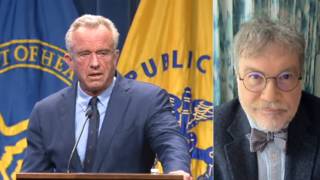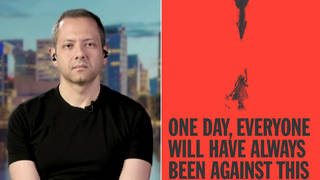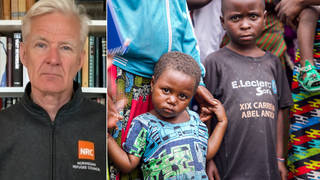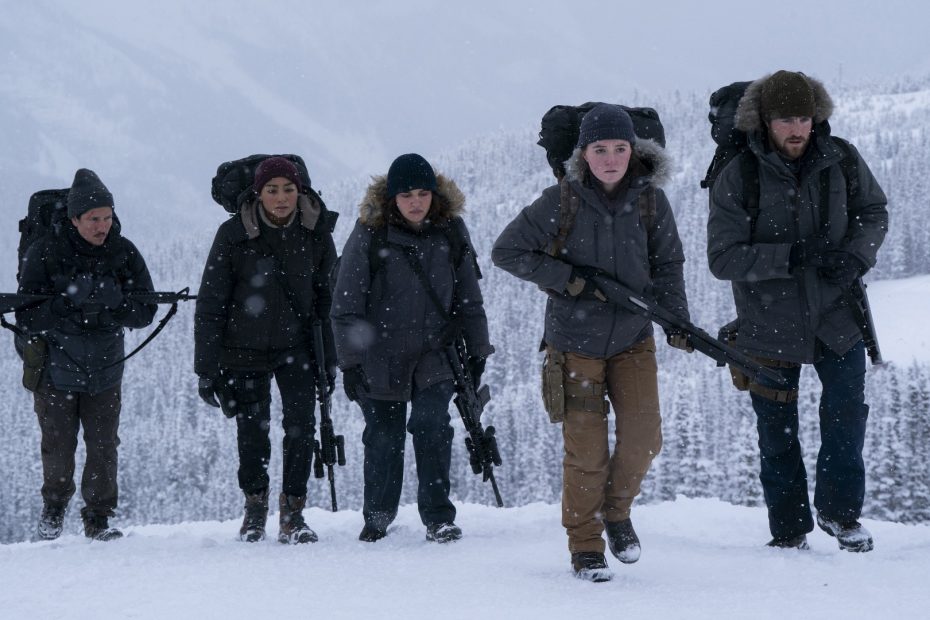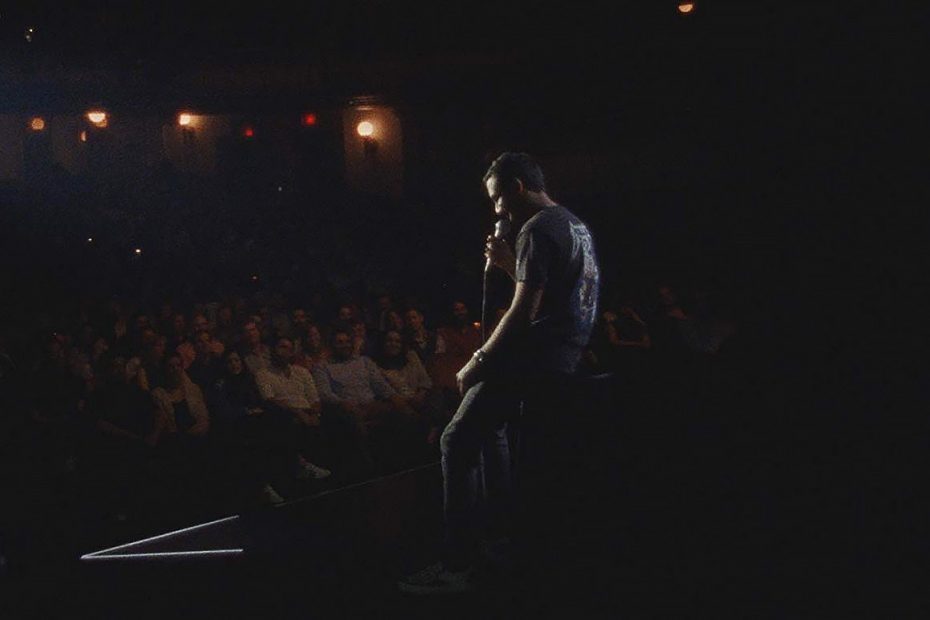Today's Liberal News
Trump, defiant on tariffs, claims trade deals are in the works
The president is foreshadowing deals with multiple trading partners in an apparent effort to quell economic anxiety and prove his tariff plan is working.
US markets have spiraled. Americans had doubts about Trump’s tariffs before that.
Recent polls showed Americans were wary of tariffs, even before the president launched his plan to realign the global trade order.
Trump says tariff policies ‘WILL NEVER CHANGE’ amid plunging stocks, Chinese response
The president’s sweeping tariff plan has thrown markets into chaos and risks sparking a global trade war.
‘There are no guarantees’: Scott Bessent won’t rule out a recession
He also said he isn’t worried about stock market turbulence, following the worst week in the market in two years.
Trump’s business acumen has long been his armor. It’s being put to the test.
The normally bullish Trump over the weekend declined to rule out the possibility of a full-blown recession as his tariff policies threaten to spark a massive global trade war.
Cannes Selects Film on Gaza Photographer Fatma Hassona; A Day Later, She’s Killed in Israeli Strike
Fatma Hassona, the 25-year-old Palestinian photojournalist and subject of the upcoming documentary film Put Your Soul on Your Hand and Walk, was killed with her family Wednesday by an Israeli missile that targeted her building in northern Gaza. The strike occurred just one day after she learned that the film centered around her life and work had been selected to premiere at the ACID Cannes 2025 film festival. Director Sepideh Farsi remembers Hassona for her talent, integrity and hope.
“Absolute Nonsense”: As Measles Cases Soar & Kids Die, Expert Slams RFK Jr. on Vaccine-Autism Link
“These were otherwise healthy school-age children who didn’t have to die.” We speak to the world-renowned pediatrician, virologist and vaccine expert, Dr. Peter Hotez, about the dangerous anti-vaccine agenda of Secretary of Health and Human Services Robert F. Kennedy Jr. Amid a growing number of measles cases in the United States, RFK Jr. has promoted skepticism of the efficacy of the MMR vaccine, which protects against measles, mumps and rubella.
“One Day, Everyone Will Have Always Been Against This”: Omar El Akkad on Gaza & Western Complicity
We speak with the award-winning author and journalist Omar El Akkad, whose new book about the war on Gaza is titled One Day, Everyone Will Have Always Been Against This. The book expands on a viral tweet El Akkad sent in October 2023, just weeks into Israel’s genocidal assault on the Palestinian territory, decrying the muted response to the carnage and destruction unfolding on the ground.
Trump Eyes Congo’s “Incredible Mineral Riches” as Armed Conflict Devastates Region
President Trump’s Africa envoy Massad Boulos has finished a tour of several East African nations, including the Democratic Republic of the Congo, where he discussed a peace deal that could involve the U.S. tapping the country’s rich mineral resources, including cobalt and lithium. Several Western mining companies are already reportedly lined up to take part in the U.S.-backed mineral resources partnership.
The Last of Us and the Big Twist That Could Have Been
This article contains spoilers through the second episode of The Last of Us Season 2.
Players of the game on which HBO’s postapocalyptic drama The Last of Us is based knew it was coming—“it” being the death of the show’s protagonist, Joel (played by Pedro Pascal).
How Mark Zuckerberg is flipping the script on kids’ safety online
The Facebook founder is lobbying Congress to leave his firm alone — and making headway.
1994
You can mix almost anything
With alcohol, sugar & lemon, branch &
Honey, cream & the cat that got it, sweat & the breath
Autonomic, the lungs as sponges, the flowers
That accompany the dead & cannot help
But push back up through the phantom soil to
Wild the surface again in time—light, & what it does
To us—too much & not enough, love, you
Can miss almost anything with alcohol, backyard
Solace & any hour the early morning has
On offer, my favorite ghost & her favorite cliché
Of making the front d
Hitler’s Terrible Tariffs
From almost the moment Adolf Hitler took office as chancellor of Germany, tariffs were at the top of his government’s economic agenda. The agricultural sector’s demands for higher tariffs “must be met,” Hitler’s economic minister, Alfred Hugenberg, declared on Wednesday, February 1, 1933, just over 48 hours into Hitler’s chancellorship, “while at the same time preventing harm to industry.
What If China Wins the Trade War?
If Donald Trump were trying to lose his trade war with China, it’s hard to see what he would be doing differently. The president’s gambit is likely to strengthen China’s geopolitical position, embolden Beijing militarily, and diminish both the United States’ global standing and its economy.
Earlier this month, Trump increased tariffs on all goods from China to 145 percent. China, in turn, responded with 125 percent tariffs on American goods, plus more targeted measures.
A Strangely Moving Cartoon Show
This is an edition of The Atlantic Daily, a newsletter that guides you through the biggest stories of the day, helps you discover new ideas, and recommends the best in culture. Sign up for it here.
Welcome back to The Daily’s Sunday culture edition, in which one Atlantic writer or editor reveals what’s keeping them entertained. Today’s special guest is Allegra Frank, a senior editor who works on stories about the changing trends in film, television, and culture.
Many Ex-Trumpers Hate the Tariffs. Not This One.
Your gadgets might have gotten pricier. Your stocks might have tanked. But Wilbur Ross says it’s all a part of the plan.
Money Talks: Why Are Student Loans So Broken?
Jillian Berman joins Emily Peck to discuss her new book on our dysfunctional student loans system.
Trump’s Obsession With “Manly Jobs” Ignores the Most Obvious One
If Americans must work with their hands, we could at least build something we need.
HHS funding slashed by 30 percent in budget proposal
The Trump administration is mulling sharp budget cuts at health agencies.
Kennedy pledges to figure out which ‘environmental toxins’ are causing autism
The secretary said better diagnostics and awareness are responsible for a quarter of the increased rate.
JB Pritzker doubts Republican promises on Medicaid
“Medicaid is where most of us think they will go,” he said.
‘We are flying blind’: RFK Jr.’s cuts halt data collection on abortion, cancer, HIV and more
Fired workers and outside experts say the cuts leave the nation more vulnerable to health threats.
RFK Jr. says Deep State ‘is real,’ called FDA employees ‘sock puppet’ of industry
The HHS secretary’s remarks shocked staffers at the Food and Drug Administration, prompting some to walk out.
Is Aziz Ansari Sorry?
The Waves also discusses the Riverside Church controversy and the case of Sarah Milov.
Your Opinions on Her Wardrobe Are Probably Unwelcome
What we say matters, especially depending on whom we say it to.
What Role Does HR Play in the #MeToo Era?
The Waves also discusses the case against Jeffrey Epstein and Taffy Brodesser-Akner’s Fleishman Is in Trouble.
Trump, defiant on tariffs, claims trade deals are in the works
The president is foreshadowing deals with multiple trading partners in an apparent effort to quell economic anxiety and prove his tariff plan is working.






